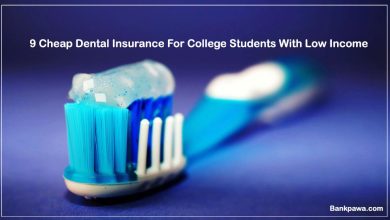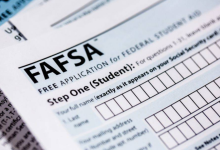Things You Need To Know About Students Loan

Things You Need To Know About Students Loan
If students don’t create and follow a plan, their student debt might spiral out of control. Therefore, before a student applies to college, their parents and them should talk about how they will pay for it.
Families should first calculate their Net Price to see if they will have to borrow money to pay for all or a portion of their attendance costs.
U.S. News and World Report reports that between 2009 and 2021, the amount of debt students must take on increased by 25%. Since college tuition has increased significantly faster than people’s salaries, students are taking out more loans.

By all means, think about ways to reduce the cost of college. One way to assist kids in obtaining college credits while still in high school and lower their overall college expenditures is to enroll in dual credit classes or attend a collegiate high school.
Applying for as many private scholarships as you can is one way to cut costs. It adds up to all those $500 and $2,500 scholarships. Additionally, some universities provide automatic merit scholarships determined by your GPA and test results.
Here are five (5) things to be aware of if you must borrow money to pay for your education:
Things You Need To Know About Students Loan
1. Which kinds of student loans are there?
Federal agencies and commercial establishments are the two primary providers of student loans. Because they have more flexible repayment options and lower interest rates than private loans, federal student loans are often preferable. The FAFSA must be filled out and submitted to be eligible for these loans.
The following federal loans are available to help pay for your undergraduate studies:
Subsidized loans: These are accessible to undergraduate students who have proven to have financial need (based on data from the FAFSA).
Unsubsidized loans These are accessible to all graduate, professional, and undergraduate students, whether or not they have shown a need for financial assistance.
Direct PLUS Loans – Parent PLUS Loans are available to parents of dependent students. If parents pass a credit check, they can borrow for their student up to the full cost of attendance minus any financial aid the student receives.
2. How much you can borrow with federal loans
Undergraduates who are dependents are eligible to borrow up to $7,500 as juniors and seniors, $6,500 as sophomores, and $5,500 as freshmen. For independent students, the maximum loan amount is $12,500 for juniors and seniors, $10,500 for sophomores, and $9,500 for freshmen.
You, as a dependent student, may be eligible for additional Unsubsidized Loans if your parents are not eligible for a PLUS Loan. Typically, undergraduate student loans have a ten-year term.
3. Who is eligible for student loans
Students can apply for these loans if they are enrolled in college at least half-time. While unsubsidized loans are available to any student enrolled in an institution that takes part in the Direct Loan program, subsidized loans are determined by financial need.
To help pay for their dependent student’s education, parents can apply for ParentPLUS loans. To be eligible, they must either prove their creditworthiness or locate a co-signer with excellent credit. Federal (or private) student loans may not be available to parents or students who have a history of loan default.
4. Loans could be included in part of your financial aid package
A student’s financial aid package may be enhanced via student loans. Most students only obtain grants and scholarships that pay a portion of their educational costs, even though many of them strive for full-ride scholarships.
Students who place in the top 10–25% of applicants typically have a higher chance than other applicants of being eligible for additional merit-based aid.
Except for extremely selective and Ivy League schools, which offer considerable need-based financial help instead, colleges offer merit aid to entice outstanding students.
Families with high and low incomes can both apply for need-based financial aid. For example, Yale University, even for families with earnings over $200,000, meets 100% of the financial demand of its students without requiring loans.
5. Do government student loans have an advantage over private ones?
Federal student loans are accessible to both financially needy and non-financially needy college attendees. Compared to private loans, these typically have better terms for repayment and cheaper interest rates.
Furthermore, the creditworthiness (credit score) of the borrower (parent or student) will determine the interest rates for private student loans.

Advantages of a federal student loan
1. Loan Default: A federal loan may not be regarded as in default for up to ninety days following a missed payment. If a payment is neglected for more than thirty days, private student loans frequently go into default.
Students should use all available loan deferment and forbearance options to prevent defaulting on their federal student loans.
2. Without interest during college: For students who receive subsidized student loans (based on financial need), the federal government will cover the interest during their time in college. Private loans aren’t accessible for this.
3. Repayment options based on income: To make repayment more feasible, several income-based repayment options are offered.
4. Not a co-signer is needed: An application for federal student loans does not require a co-signer or a credit check. To be eligible for Parent PLUS Loans, parents must, however, pass a credit check. Most likely, borrowers requesting private student loans will require a co-signer.
FAQ
Conditions for student loans in Nigeria
Students who apply for the loans must meet certain requirements to be eligible, such as having a household income of less than N500,000 annually, proof of acceptance to any public university in the nation, and the availability of at least two guarantors.
Uses of student loans
A variety of costs associated with a university degree might be covered by student loans. Federal and commercial lenders let you use student loans to pay for these costs, whether you’re pursuing an undergraduate or graduate degree. instruction. fees that are not covered by tuition, such as those for the lab, materials, and campus.
How to pay back student loans in Nigeria?
Two years following the applicant’s NYSC program completion, loan repayment will begin. Any employer may remove 10% of the applicant’s salary at source to cover the loan repayment. Additionally, they will repay the loan with 10% of their entire monthly profit if they work for themselves.
The most common types of student loan
Federal student loans and private student loans are the two most popular borrowing options.
The minimum payment for student loans
Your monthly payments under the Standard Plan are set at a minimum of $50 per month. To ensure that you pay off the full loan amount, including accrued interest, before the end of the payback period, the precise payment amount is computed.
How long can you have a student loan?
Repayment terms for government loans vary, giving borrowers anything from 10 to 25 years to pay them back in full. Higher monthly payments are the outcome of longer loan terms or shorter payback periods. Despite being the most widely used plan, the Standard Repayment Plan might not be the best option for you.
The interest rate on student loan
| LOAN TYPE | BORROWER | FIXED INTEREST RATE |
|---|---|---|
| Direct Subsidized Loans and Direct Unsubsidized Loans | Undergraduate students | 5.50% |
| Direct Unsubsidized Loans | Graduate or professional students | 7.05% |
| Direct PLUS Loans | Parents and graduate or professional students | 8.05% |















